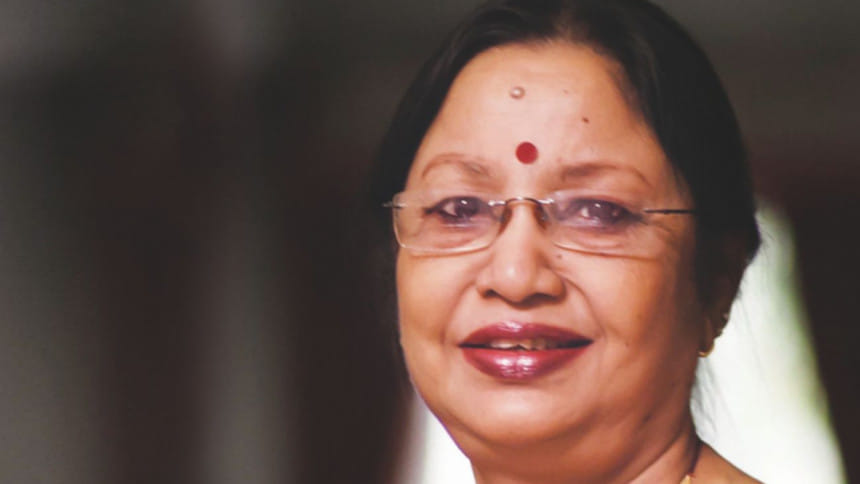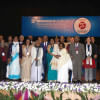Ferdausi Rahman

Ferdausi Rahman is one of the most celebrated singers of the country. Daughter of legendary folk singer Abbas Uddin, Rahman was born on June 28, 1941 in Cooch Bihar, a district in the northern part of West Bengal, India.
Rahman's long walk on the path of music began at an early age. She was initially trained in music under the tutelage of her father, and in 1946, she performed on stage for the first time in Kolkata.
After partition in 1947, her family migrated to the then East Pakistan and that very same year she performed for the first time on radio as a child artiste in a programme called Khelaghor.
Years later, Ferdausi Rahman, still a minor, started singing on the radio as an adult after getting special permission. Her first programme went on air on an August morning in 1955.
Ferdausi Rahman released her first record from HMV in 1957 in Karachi, which included two folk songs that became very popular then. She made her debut as a playback singer in 1959 with Ehtesham's film, Ei Desh Tomar Amar, where she lent her voice under the music direction of legendary singer-composer Khan Ataur Rahman. The next year, she gave her first music direction for Rajdhanir Bukey with co-director Robin Ghosh. She eventually went on to playback in around 200 Bangla and Urdu films. Her melodious Bangla songs and flawless Urdu singing brought her accolades.
In 1964, she became the first artiste to sing on the newly established Pakistan Television (now Bangladesh Television) in erstwhile East Pakistan. Ferdausi Rahman initiated an interactive musical show Esho Gaan Shikhi on BTV to teach children Bangla music. The programme has been running for 52 years.
Ferdausi Rahman, a virtuoso singer, can sing Classical, Khayal, Thumri, Ghazals, Nazrul Sangeet, Bhawaiya, Bhatiali and Adhunik Bangla songs with incredible ease. She has over 500 disc records, a few LPs, and a good number of cassettes and CDs which were released from Bangladesh, India and Pakistan.
Not only in music, she excelled in her academic life as well, standing first among the girls and 7th in combined merit list in Secondary School Certificate Examination from Bangla Bazar Government High School in 1956. In 1958, she secured 12th position in combined merit list in Higher Secondary Certificate Examination from Eden Girls' College. She went on to finish her Bachelors and Masters in Sociology from the University of Dhaka. In 1963, Ferdausi was awarded a UNESCO Fellowship for music and studied staff notation at London Trinity College of Music for six months.
Ferdausi Rahman has continued her father's legacy of presenting Bangla music on a global platform. She has put her distinct mark on all genres of Bangla music.
She has many awards to her credit. As recognition for her outstanding contribution to music, she was awarded the Lahore Cine Journalist Awards (1963), President's Pride of Performance Medal (1965), National Film Award (1976), Bachsas Award (1976), Ekushey Padak (1977), Independence Award (1995), Meril-Prothom Alo Lifetime Achievement Award (2008), and Citycell-Channel i Lifetime Achievement Award (2015), among others.

 For all latest news, follow The Daily Star's Google News channel.
For all latest news, follow The Daily Star's Google News channel. 





Comments